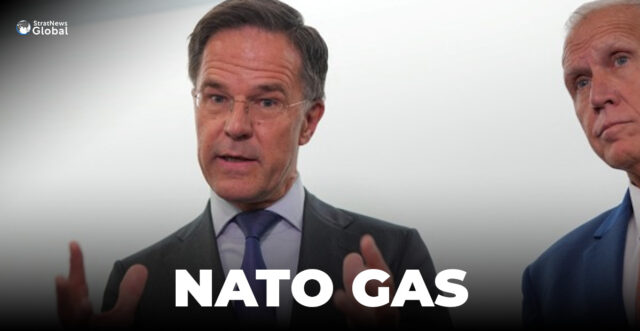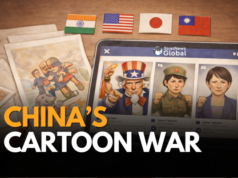If hypocrisy were an energy source, NATO could ditch Russian gas tomorrow.
On July 15, NATO Secretary General Mark Rutte delivered a pompous warning from Washington, threatening secondary sanctions of 100% on Brazil, China, and India for continuing to buy Russian oil and gas.
The former Dutch prime minister, now playing global morality enforcer, declared that if these countries didn’t fall in line, they’d be hit hard—very hard—because apparently, NATO now decides how sovereign nations conduct their energy trade.
“Listen,” he intoned, “if you’re the president of China, the prime minister of India, or the president of Brazil, and you’re still trading with the Russians… I will slam secondary sanctions on you of 100%.”
But here’s the little detail the sanctimonious little Rutte forgot to mention: in June 2025 alone, the EU’s five biggest fossil fuel buyers shelled out €1.2 billion to Russia. And over 72% of that was for natural gas—the very thing the EU refuses to sanction.
Why? Because that’s how Europe stays warm, powers its factories, and keeps pretending it’s morally superior. Let’s not forget, 23 of NATO’s 32 members are part of the EU.
Take Hungary, for example. In June, it imported €191 million worth of Russian gas via pipeline and another €165 million in crude oil—legally, under an EU exemption. Apparently, this doesn’t count as “supporting the war effort,” because when EU members buy Russian energy, it’s called “strategic autonomy.” But when India or Brazil does it, it’s an international crisis.
The irony is richer than a Gazprom dividend.
Let’s be clear: NATO has no mandate to dictate the economic choices of sovereign nations like India, Brazil, or China. These are not NATO members. They do not answer to Brussels. They have the right—legally and morally—to purchase energy from whoever they choose, especially when the people doing the finger-wagging are quietly helping keep the Kremlin’s energy revenues afloat.
It’s a stunning act of gaslit diplomacy: pressure the Global South to stop buying oil from Russia, while the EU keeps the gas flowing in through pipelines and LNG terminals. When India refines Russian crude and sells it back to the West, it’s “circumvention.” When the EU takes it directly, it’s “pragmatism.”
And now, under the Trump Doctrine 2.0, Rutte says the world has 50 days to force Putin into peace talks—or face economic hellfire.
What’s next? NATO issuing food sanctions on countries that import Russian wheat? Drone strikes on Indian refineries?
The absurdity is matched only by the arrogance. Rutte even urged U.S. senators and the media to help “put maximum pressure” on these countries, as though they were rogue states instead of functioning democracies managing complex energy needs in an unstable world.
Here’s a revolutionary thought: maybe NATO should focus on defending its own members and stop trying to micromanage global trade. Maybe it should stop moralising from behind a curtain of gas pipelines and exemptions. Maybe, just maybe, it should clean its own house before demanding others burn theirs down.
Until then, NATO might want to keep its sanctimony on tap—right next to the Russian gas it still can’t live without.
In a career spanning three decades and counting, Ramananda (Ram to his friends) has been the foreign editor of The Telegraph, Outlook Magazine and the New Indian Express. He helped set up rediff.com’s editorial operations in San Jose and New York, helmed sify.com, and was the founder editor of India.com.
His work has featured in national and international publications like the Al Jazeera Centre for Studies, Global Times and Ashahi Shimbun. But his one constant over all these years, he says, has been the attempt to understand rising India’s place in the world.
He can rustle up a mean salad, his oil-less pepper chicken is to die for, and all it takes is some beer and rhythm and blues to rock his soul.
Talk to him about foreign and strategic affairs, media, South Asia, China, and of course India.





